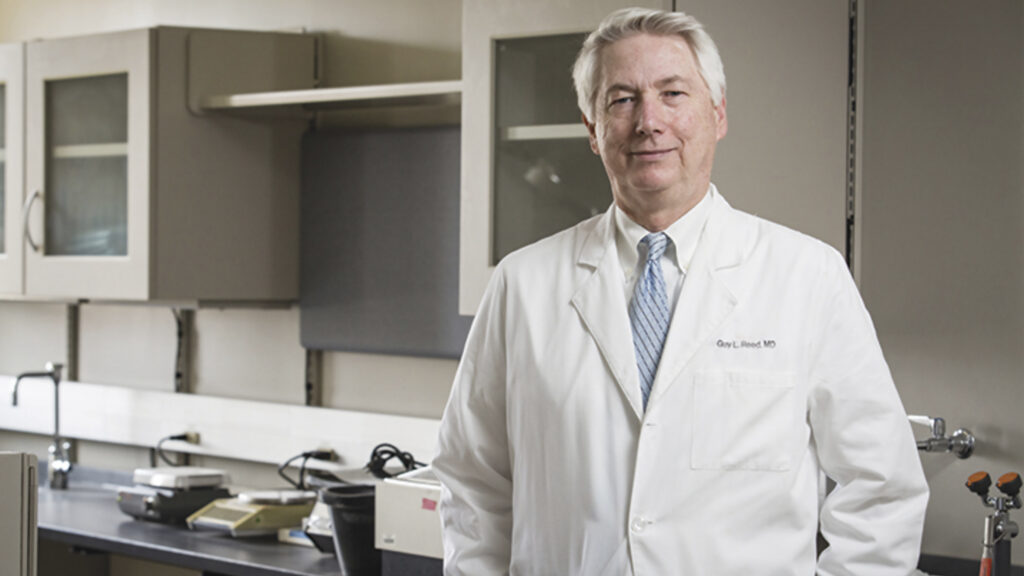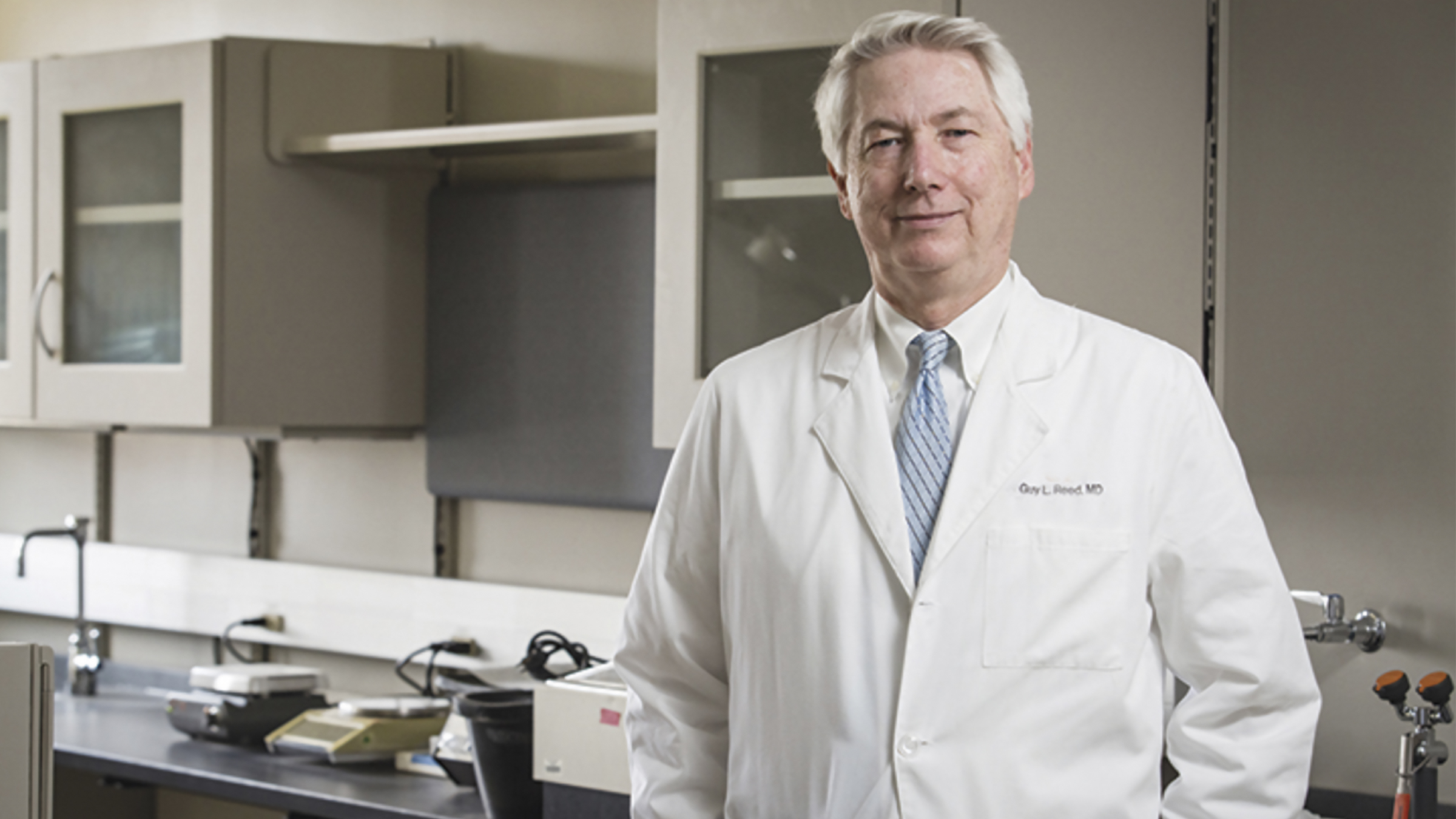
Connecting with UArizona College of Medicine – Phoenix Dean Guy Reed
The University of Arizona Health Sciences spoke to UArizona College of Medicine – Phoenix Dean Guy Reed at the end of the academic year to discuss the past two years, what lies ahead for the College of Medicine – Phoenix and the Phoenix Bioscience Core. Below is an excerpt of the article, and you can read it in its entirety here.
College of Medicine – Phoenix Dean Guy Reed, MD, MS, came to the University of Arizona Health Sciences in 2017. As befits its setting in Arizona’s largest city, the college trains medical students in collaboration with nine clinical partners, including Banner – University Medical Center Phoenix and the Phoenix Veterans Administration. This model involves the most outside partnerships at Health Sciences.
“These partnerships afford our students a rich exposure to patients from diverse economic, ethnic and racial groups. The collaborations provide experiences with very different models of health care delivery, from longitudinal experiences in rural areas, urban safety net hospitals, veterans’ care, to high end quaternary care, among others,” Dr. Reed said.
Managing those partnerships, dealing with the unique setting and growth of the downtown Phoenix Bioscience Core, and educating and training medical students through a global pandemic highlight his tenure in Phoenix.
The two years of the pandemic have been difficult for everyone. What have they shown you?
We could probably spend all day talking and musing together about this. One lesson is top of mind. Although we can do many aspects of our work virtually, we need social contact with each other to do our best, most meaningful and most impactful work. Personal contact gives us meaning, purpose and cohesion. Young physicians require irreplaceable, in-person training that is essential for them to become astute diagnosticians and healers. So much of the information necessary to make patients better comes from non-verbal communication and other nuances that help us to understand and treat the patient’s illness and associated ‘dis-ease.’
What do you envision the college and Phoenix Bioscience Core campus to look like in five years?
The PBC will have several new buildings to accommodate a robust research enterprise including the new Center for Advanced Molecular and Immunological Therapies being developed by Health Sciences Senior Vice President Dr. Michael Dake. There will be additional university degree programs here, such as engineering and others. There will be several new startups and strong, frictionless collaborations among the state universities.
More news from the PBC
- PBC Arts Committee Student Grant to showcase student research and innovation through art
- Ten Arizona research teams earn $100K Flinn Foundation seed grants
- Unlocking the immune system’s potential to fight skin cancer
- ASU professor named Rural Health Fellow
- Phoenix Bioscience Core Unveils XLR8 PBC to Propel Scale-Ready Health Tech Companies
- ASU selected as home and partner for CHIPS and Science Act-funded national facility for semiconductor advanced packaging
- $3.9 Million Grant Seeks to Expand Primary Care and Rural Tracks for Medical Student Training in Arizona

